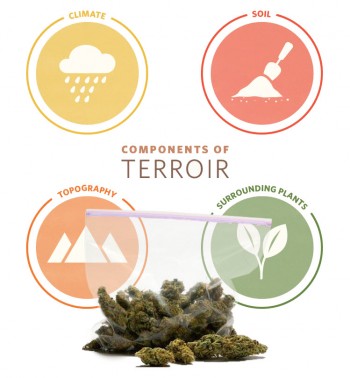
What Do Cannabis Consumers Think About Driving Under The Influence?
Here’s What The Surveys Say
While cannabis has numerous benefits for health and lifestyle, there are certain situations that are extremely controversial and cause a major divide in opinions.
Examples of these situations include cannabis use while pregnant, and while driving, among others. In this article, we’ll be discussing the latter – driving under the influence of weed – and what cannabis consumers think about it. Why is it that many cannabis users have zero issues smoking while high? Then again, there are some people that are more prone to getting into a traffic accident while they’re high on weed.
People also have different perceptions of risk, societal norms, and personal beliefs that affect how they perceive potentially risky situations, such as driving under the influence. Yet regardless of that, the cases of DUI’s and impaired driving has risen sharply in the United States, because cannabis is already legal in some form, in 38 states.
The AAA Foundation for Traffic Safety recently released the results of two separate studies designed to analyze the thoughts and perceptions of marijuana consumers when it comes to driving while stoned, while the second was to help craft a campaign to help prevent these behaviors. According to Dr. David Yang, the AAA Foundation for Traffic Safety’s president and executive director: “Understanding what motivates cannabis consumers to drive under the influence can be helpful in developing effective safety strategies.”
“With insights on perceptions, decision-making, and behavior, we aim to inform policies and interventions that make our roads safer for everyone.”
Based on the feedback from the respondents, they found that 44.1% were daily and frequent consumers of weed, which meant that they had partook in it several times a day. Meanwhile, 57.8% of them said they drove everyday, and 84.8% admitted that they drive on the same day they consume weed. A surprising 53% of them said they consumed weed an hour or less before they hit the road.
However, 46.9% of the respondents believed that cannabis consumption either contributed to them driving the same, while 14.7% think it even helps them drive a little better, and 19.4% of them think it helps them drive a lot better. That said, 38.6% said they would believe messaging surrounding cannabis use and its safety when it comes to driving, from industry groups or other brands/companies.
“Effective messaging about cannabis-impaired driving needs to include credible voices, real-world scenarios, and respectful language,” explains the AAA director of traffic safety advocacy, Jake Nelson. “Individuals who consume cannabis come from all walks of life and that should be reflected in the messaging,” they said.
In summary, tailored public health messages that can promote safe driving habits especially among cannabis consumers can help ensure that the roads are kept safe for all.
Study Shows That Experienced Cannabis Consumers Can Still Drive Safely
Perhaps seasoned cannabis consumers fare better on the road, compared to people who don’t. While there’s no evidence to prove this, there are some studies as well as anecdotal evidence that supports this claim.
After all, experienced cannabis users can already develop some kind of tolerance to the impairments brough about by cannabis use, which can affect one’s driving performance. Said impairments can include, but are not limited to, slower reaction times on the road, lane weaving, and difficulty managing complex cognitive tasks on the road.
One study in particular demonstrates that experienced cannabis consumers don’t display significant alterations in their driving performance. For the study, Australian researchers analyzed the simulated driving performance with baseline observation followed by 45 minutes after vaporization of cannabis flower. “After vaporizing one dose of their prescribed cannabis flower, participants exhibited no significant changes in performance on any of the video-based tasks (hazard perception skill, gap acceptance, following distance or speed) compared to baseline,” reported the investigators.
They concluded that “… a dose of vaporized cannabis (consumed in accordance with prescription) may not affect hazard perception ability or driving-related risk-taking behavior among medicinal cannabis patients.”
Another similar scientific paper revealed similar findings; this time, a study out of the United Kingdom involved reviewing all existing human trials that analyzed the cannabis tolerance of subjects after repeated exposures. The British investigators analyzed a total of 36 trials of over 1000 subjects. They found that repeated doses and exposure to cannabis did not, or had very limited, effects on impairment when it came to the subjects’ psychomotor or cognitive performance.
The study authors specifically noted that subjects who had repeated exposure to THC or weed displayed either full or partial tolerance in psychomotor and cognitive abilities. “Studies indicated relatively minor or no effects of repeated Δ9-THC administration in RU (regular users) on a number of cognitive domains including learning, memory, vigilance, and psychomotor ability. This absence of effect in RU might indicate the development of full tolerance,” they said.
“Available evidence suggests that the effects of acute marijuana or Δ9-THC administration are less prominent in individuals with a regular pattern of cannabis use compared to non-regular users. Cognitive function appears to be the domain most likely to demonstrate tolerance upon repeated exposure, with some evidence of full tolerance indicating a complete absence of acute effect,” they concluded. “The acute intoxicating and cardiac effects of Δ9-THC are also blunted upon regular exposure. Similar but limited evidence also suggests blunted acute psychotomimetic effects of Δ9-THC individuals using cannabis regularly,” they said.
In summary, individuals who consume more marijuana on a frequent basis, will develop a tolerance not just to the drug but to the intoxicating effects of the drug on the human brain and body. For this reason, we can easily see why experienced cannabis users are more confident and safe drivers even while they’re stoned.
Conclusion
While we don’t encourage driving under the influence, people will still continue to do it, no matter what the laws say. Some even believe it makes them a better driver. That said, it’s a risky behavior yet there is a population of individuals who can safely do so without any troubles. Individuals, especially those who are new to marijuana consumption, must keep in mind that THC will have an effect on coordination, reaction time, perception, and decision-making – so it’s best avoided whenever possible.







